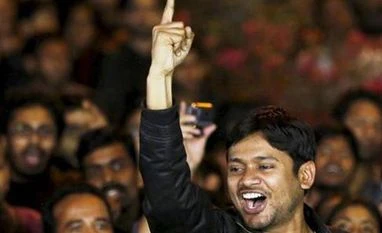The JNU Students Union which had earlier decided to boycott the Lyngdoh committee recommendations for the student body polls, has decided to abide by the same.
Over-riding the resolutions of the two previous General Body meetings held in December 2015 and March 2016, where it was decided that the JNUSU polls will be conducted as per the university constitution and not according to Lyngdoh panel's recommendations, the students have now resolved to continue with the present arrangements.
The decision was taken at a meeting which began last midnight and continued for over 10 hours. The polls are then likely to coincide with the Delhi University Students Union (DUSU) polls for the fourth consecutive year.
Other resolution which were adopted during the meeting was condemning the incident of rape of a fellow student by a Phd scholar inside the campus and demand for immediate arrest of the accused claiming that delay has been aggravating the matter.
"It was decided that students will stage a protest in front of the police headquarters tomorrow demanding immediate arrest of the accused student. Police should oppose the bail during the hearing and restrain from providing information to the media as it adds to the trauma of the victim," said JNUSU Vice President Shehla Rashid Shora.
The students will also take out a march on Friday night from Ganga Dhaba demanding justice for the girl.
After remaining suspended for 4 years over non-compliance of Lyngdoh committee recommendations which were implemented with a view to check money and muscle power, JNU had revived the election process in 2012.
Also Read
The committee headed by former Chief Election Commissioner J M Lyngdoh had in 2005 recommended a cap of Rs 5,000 on election expenses per candidate besides formulating other rules and regulations for cleaning up campus politics. In 2006, the Supreme Court had directed that these recommendations be implemented.
After a four-year long legal battle, JNU students had in 2012 agreed to a five-point relaxation to them from the recommendations and went ahead with the polls.
However, now the students have decided to reject the Lyngdoh committee recommendations and go by the JNU constitution.
Students are the sole authority for conduct of the student union elections and the university administration has no role in the entire process.
The aspects of the Lyndoh panel mandate that the students have been opposing include a cap on the number of times that a candidate can recontest, the reduction of the campaign time from a month to a week and curb on expenditure allowed for the poll campaign, among others.
)